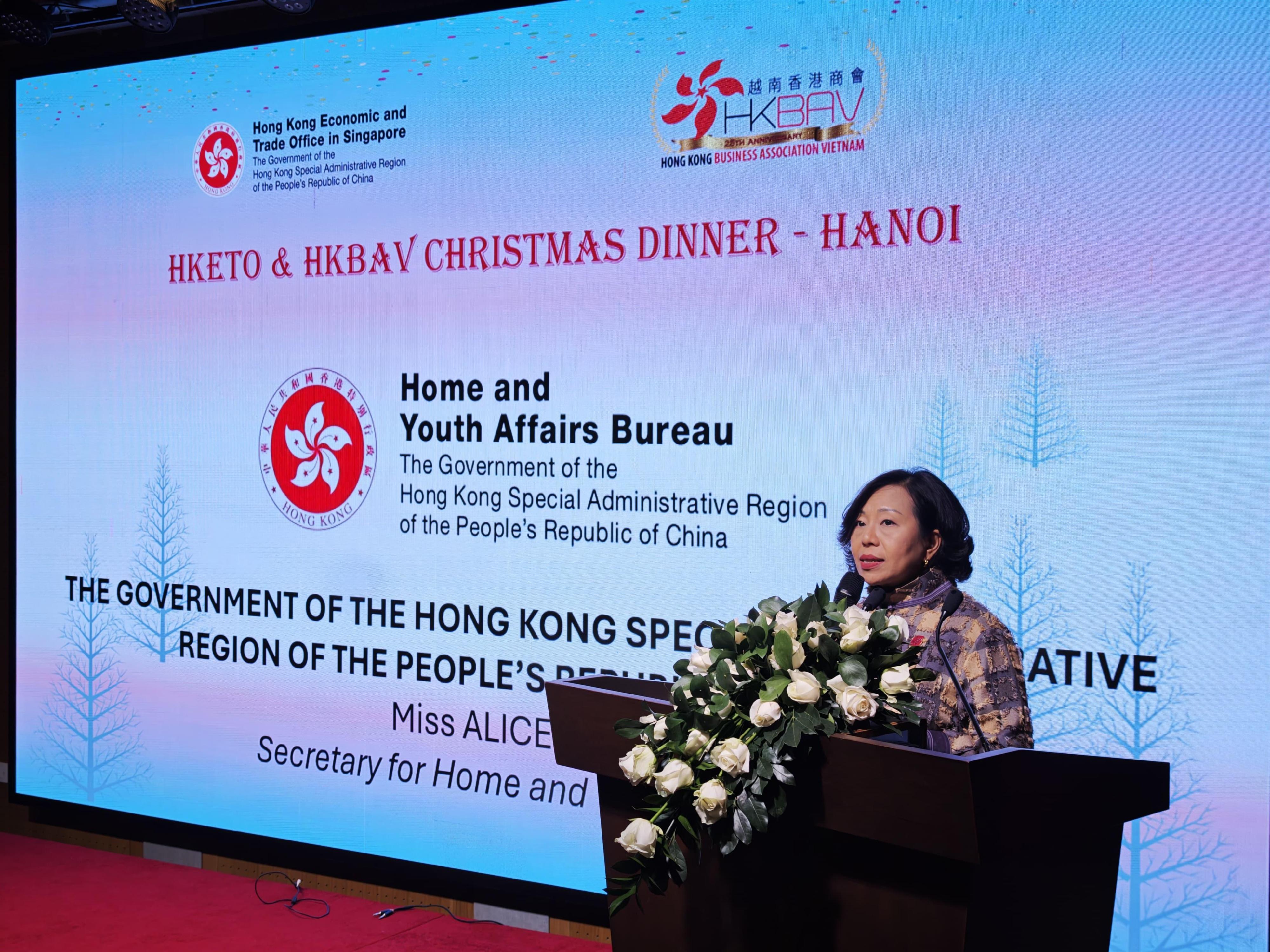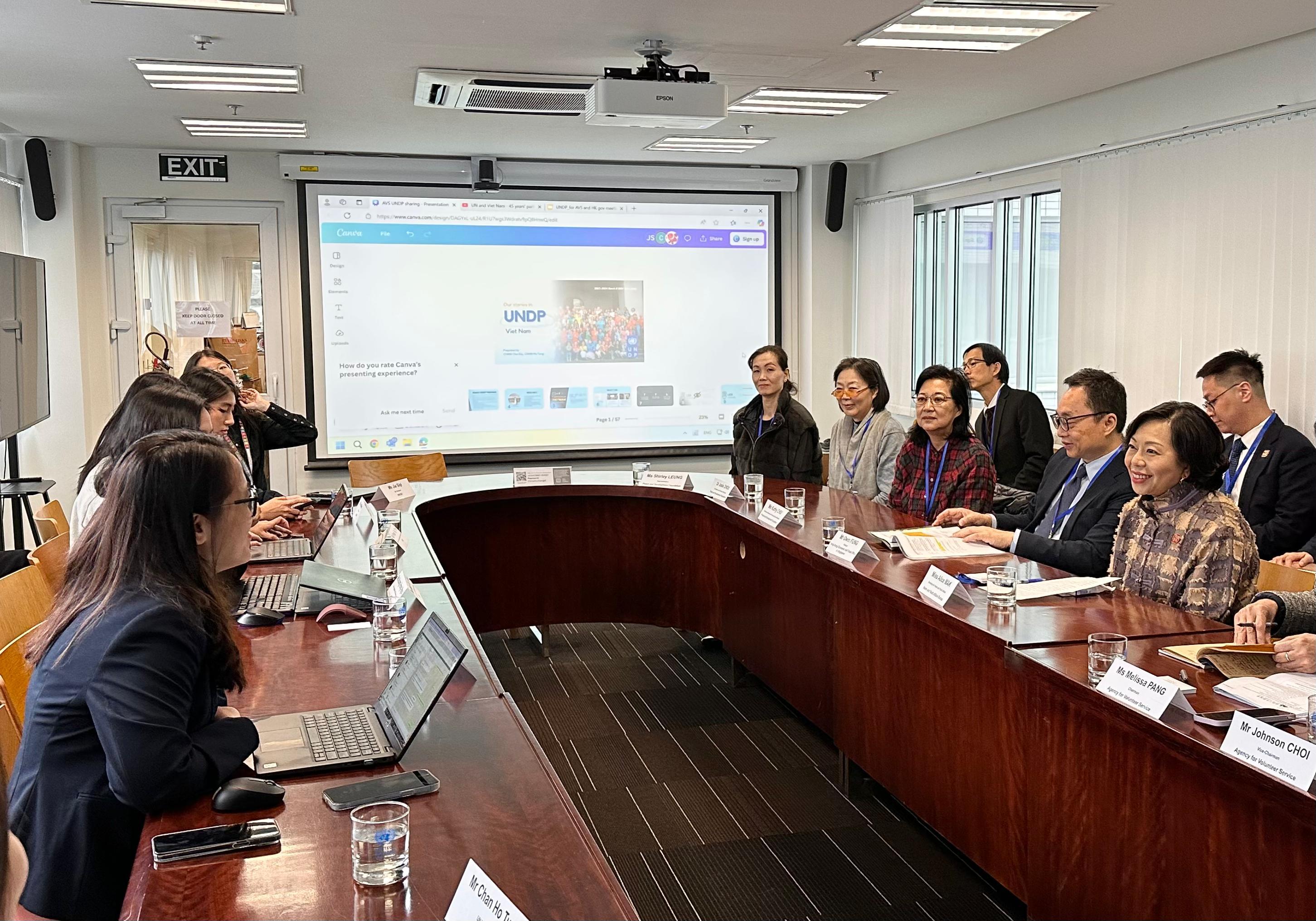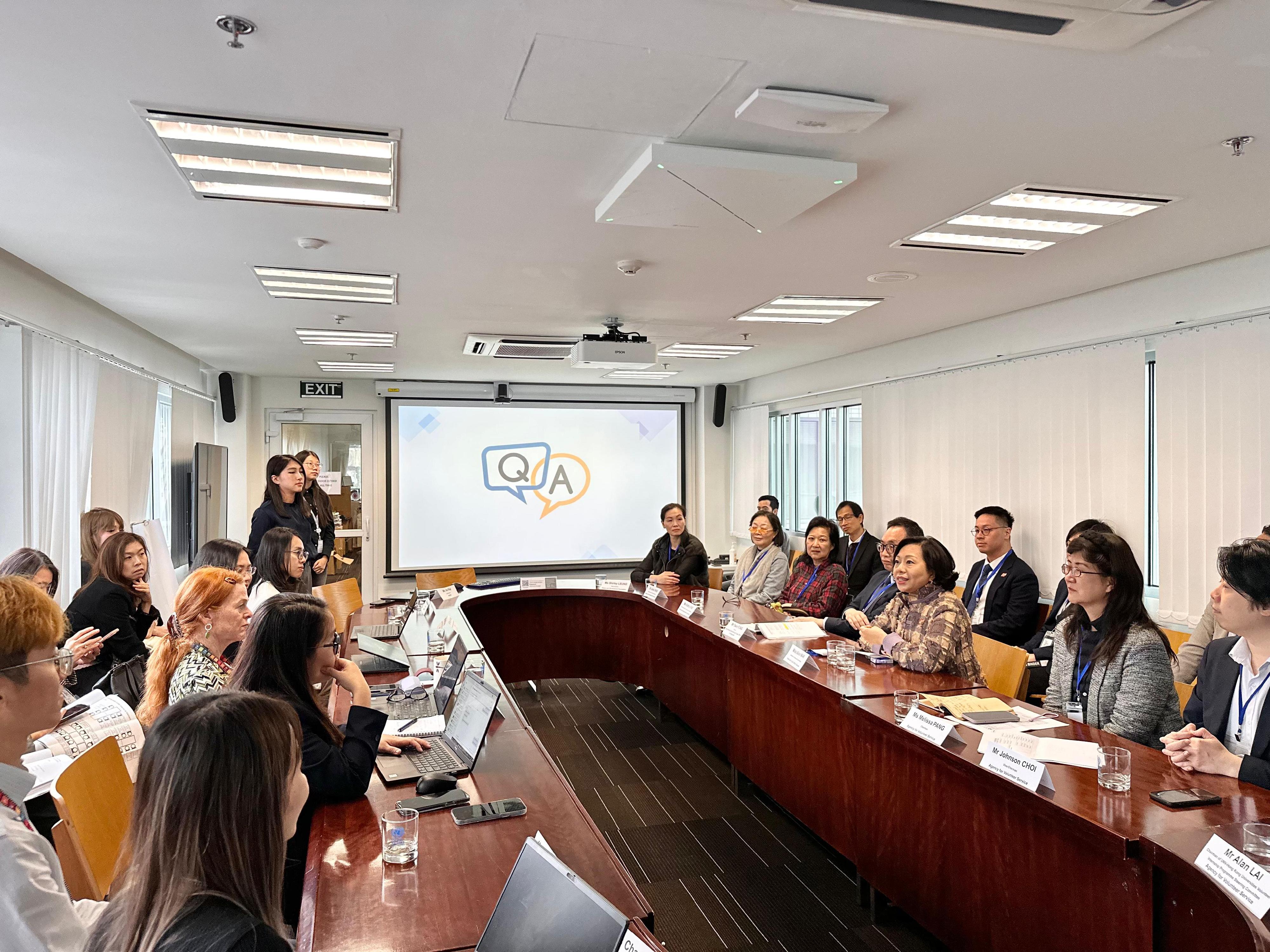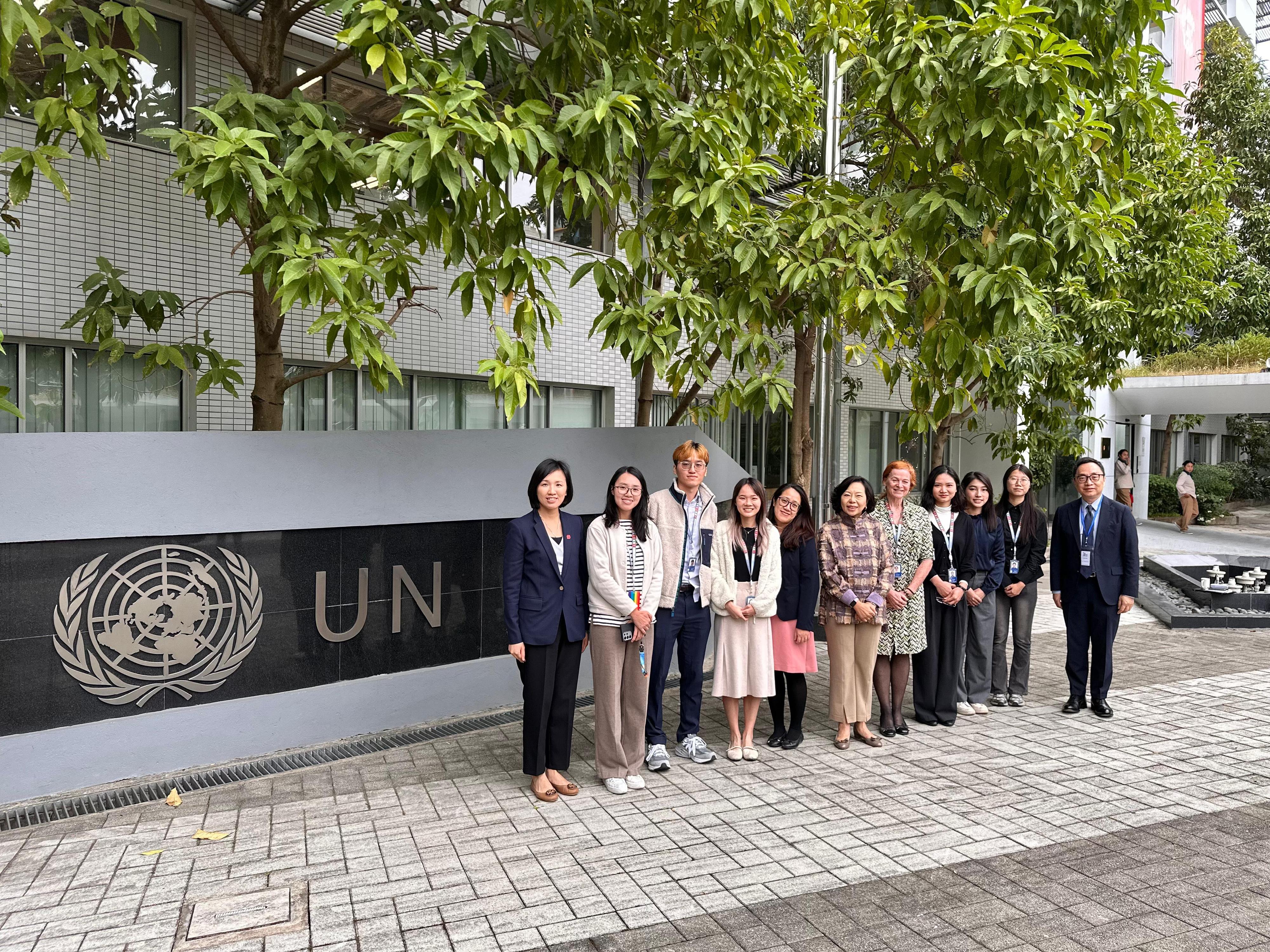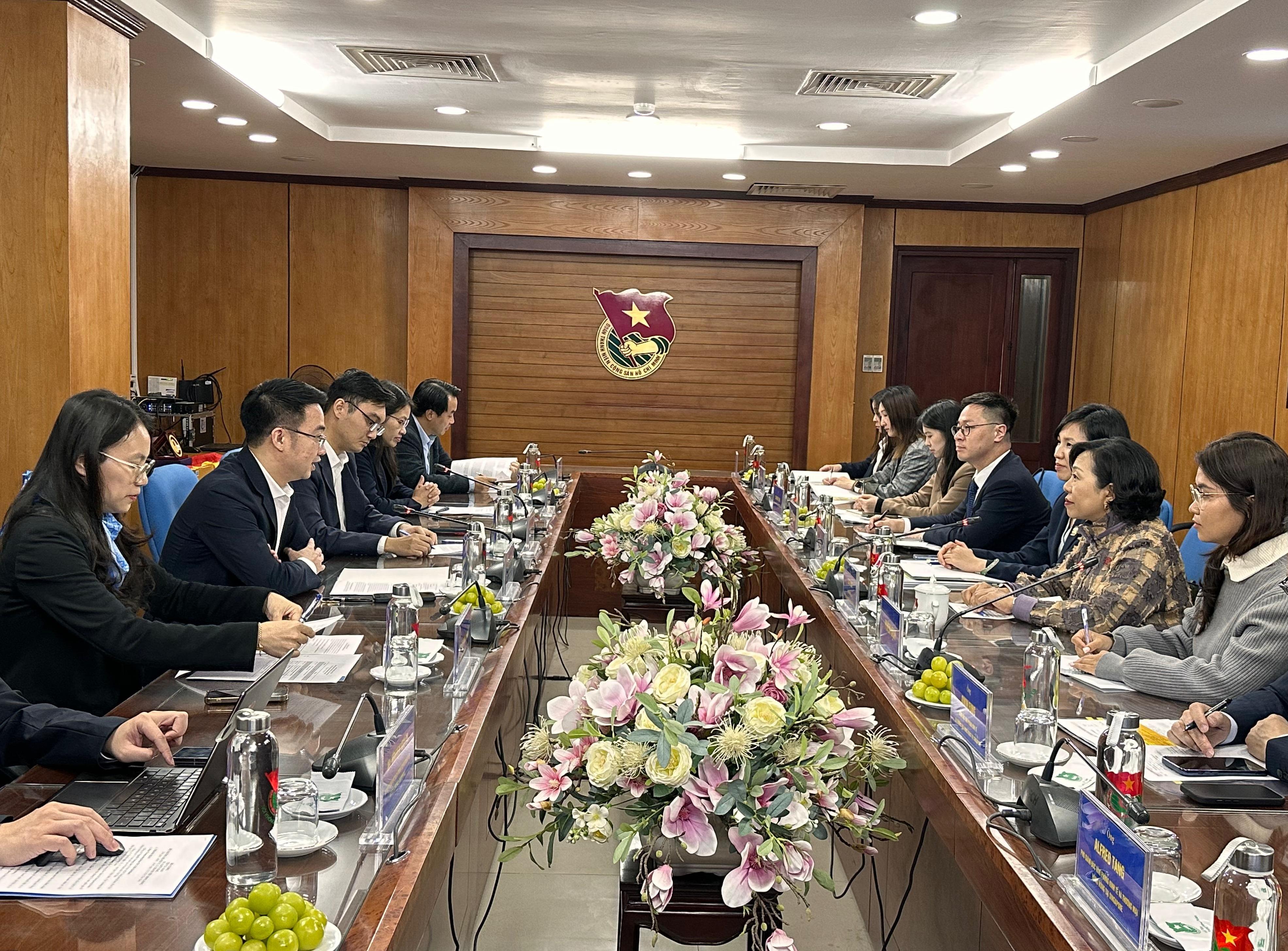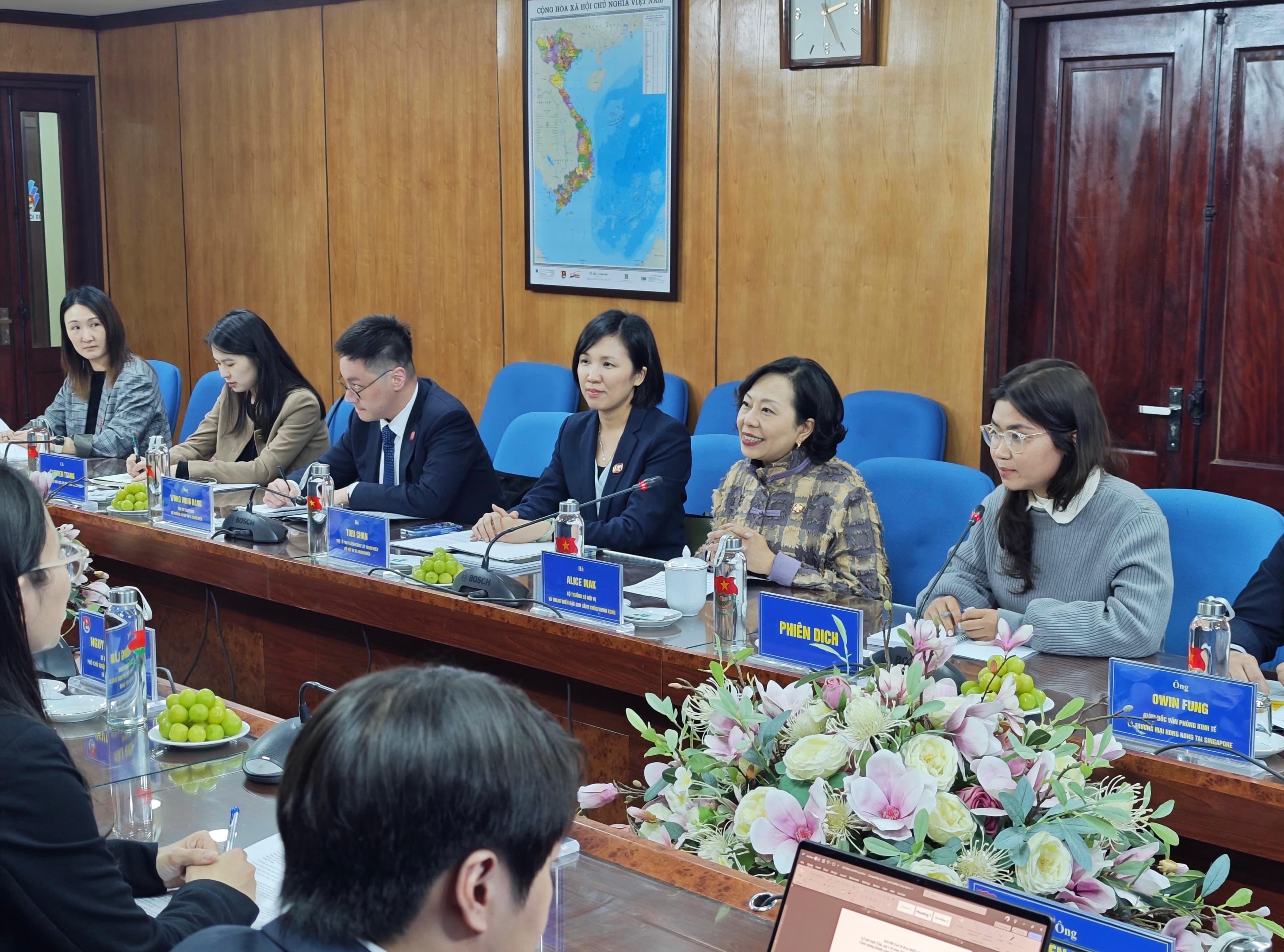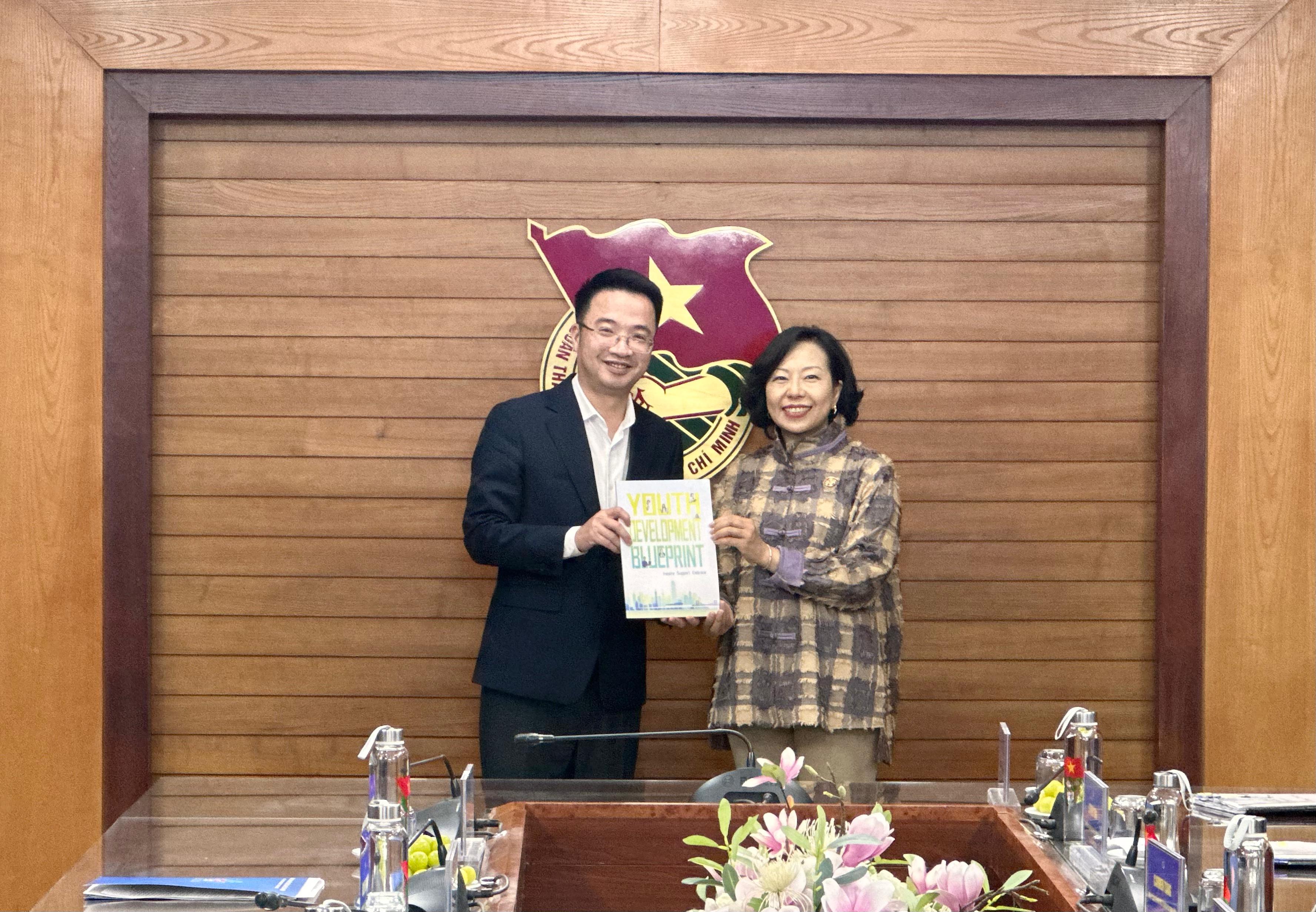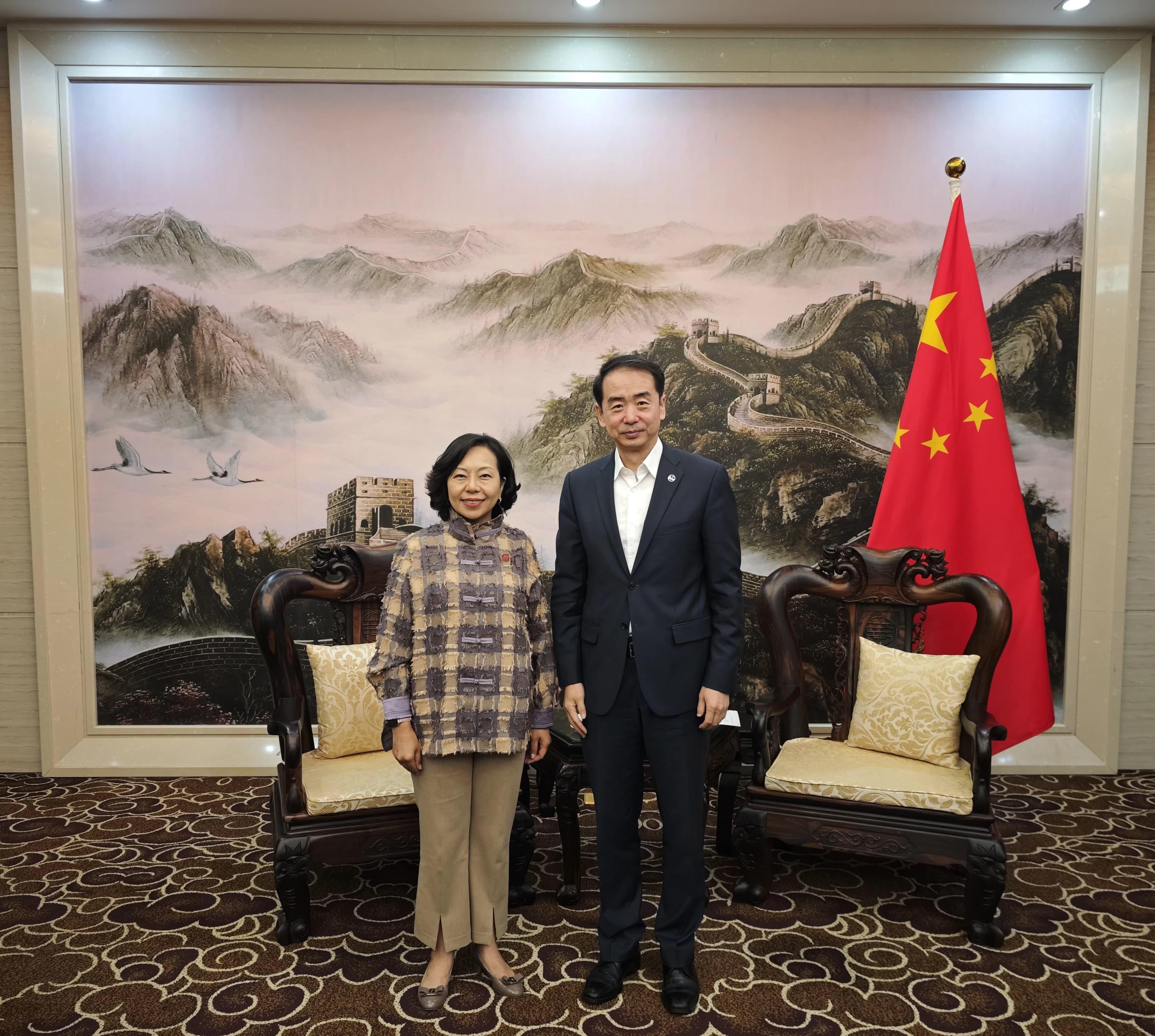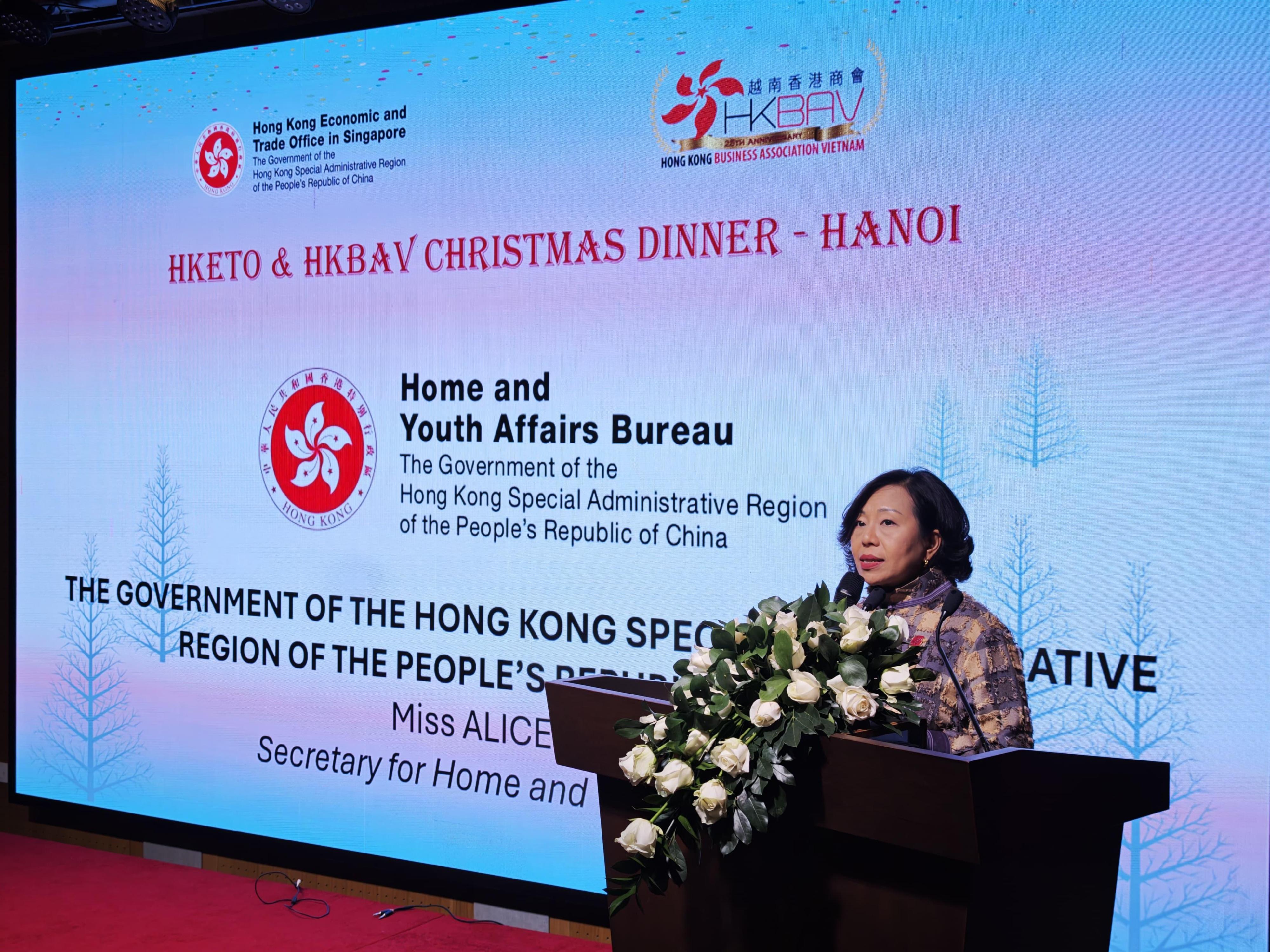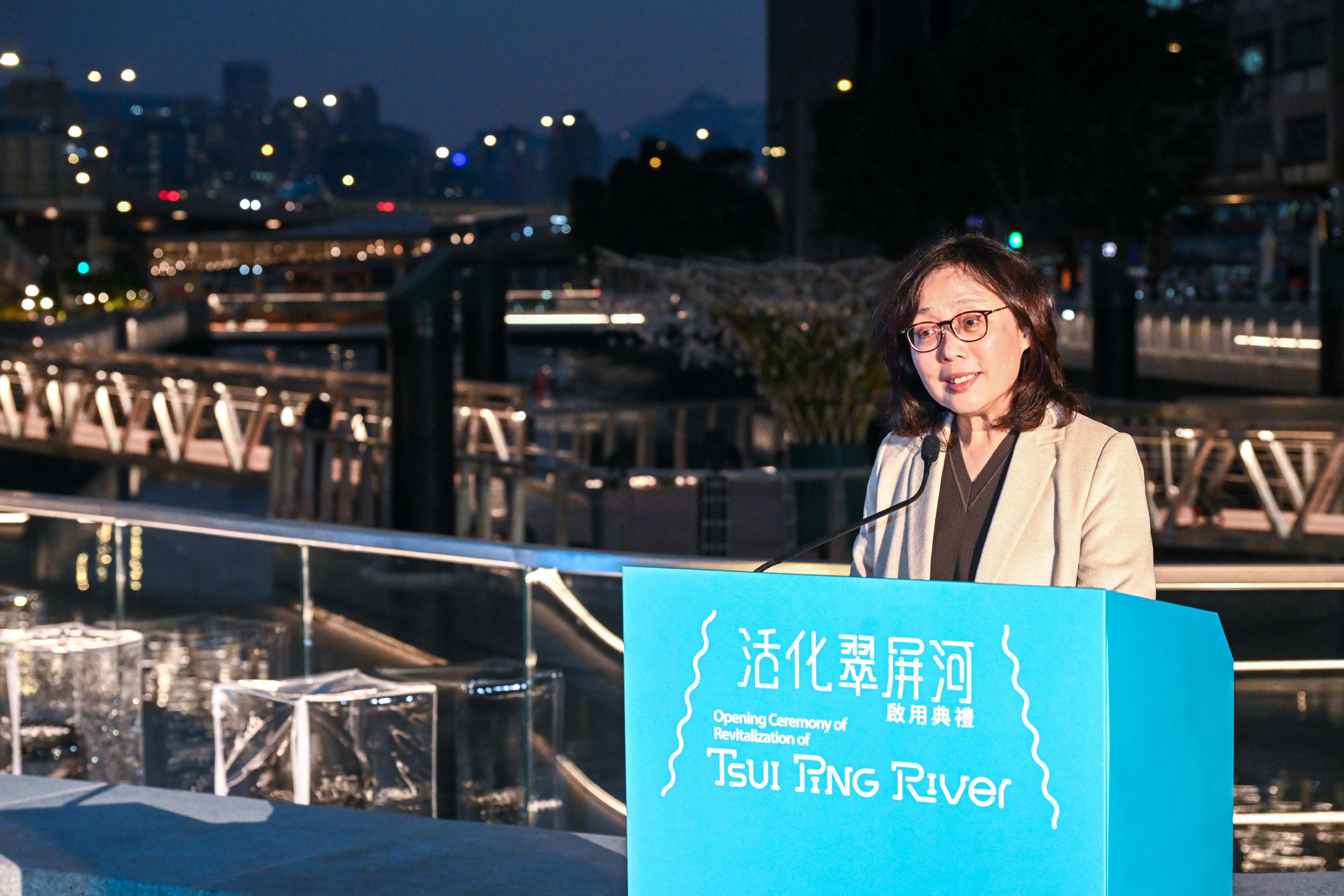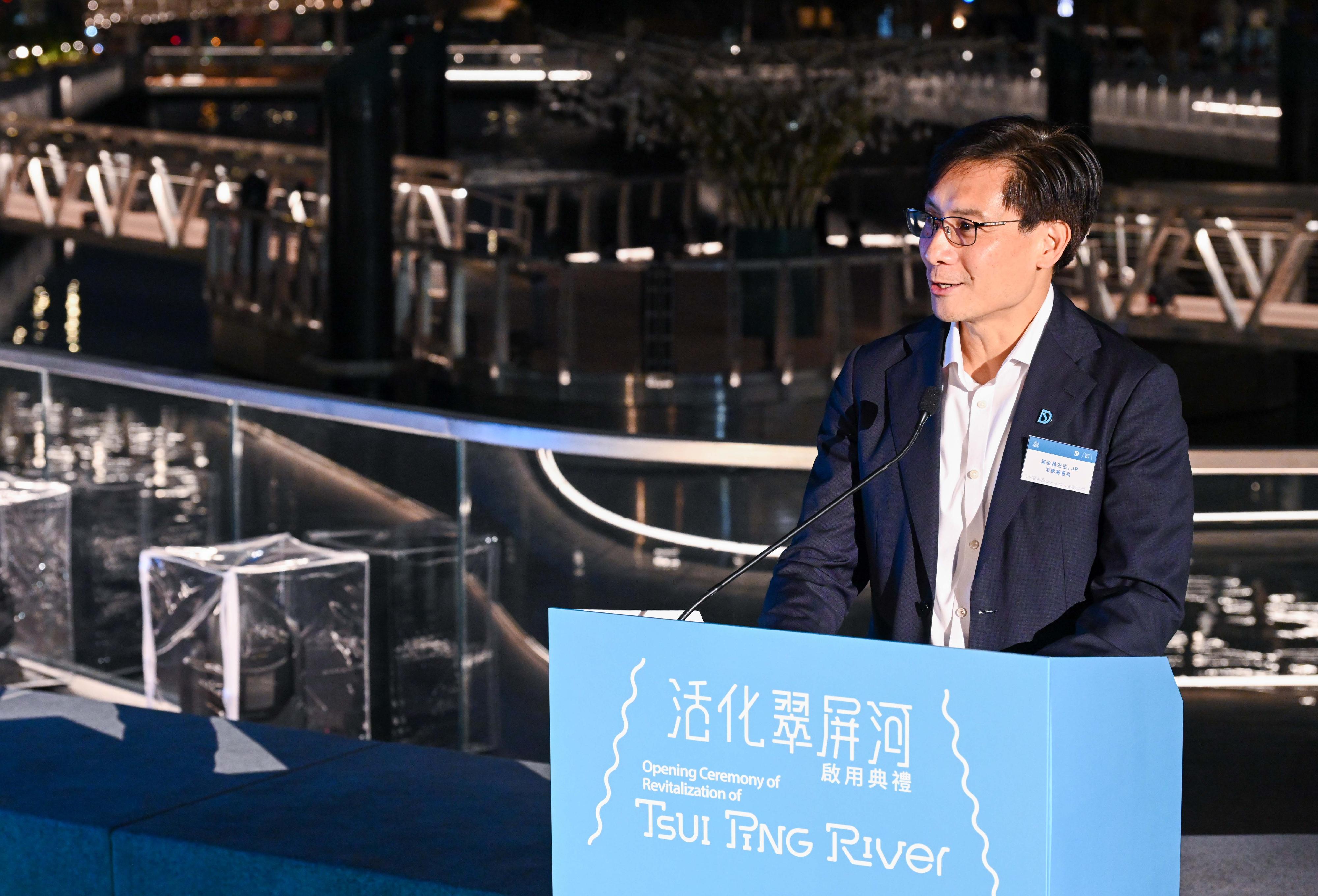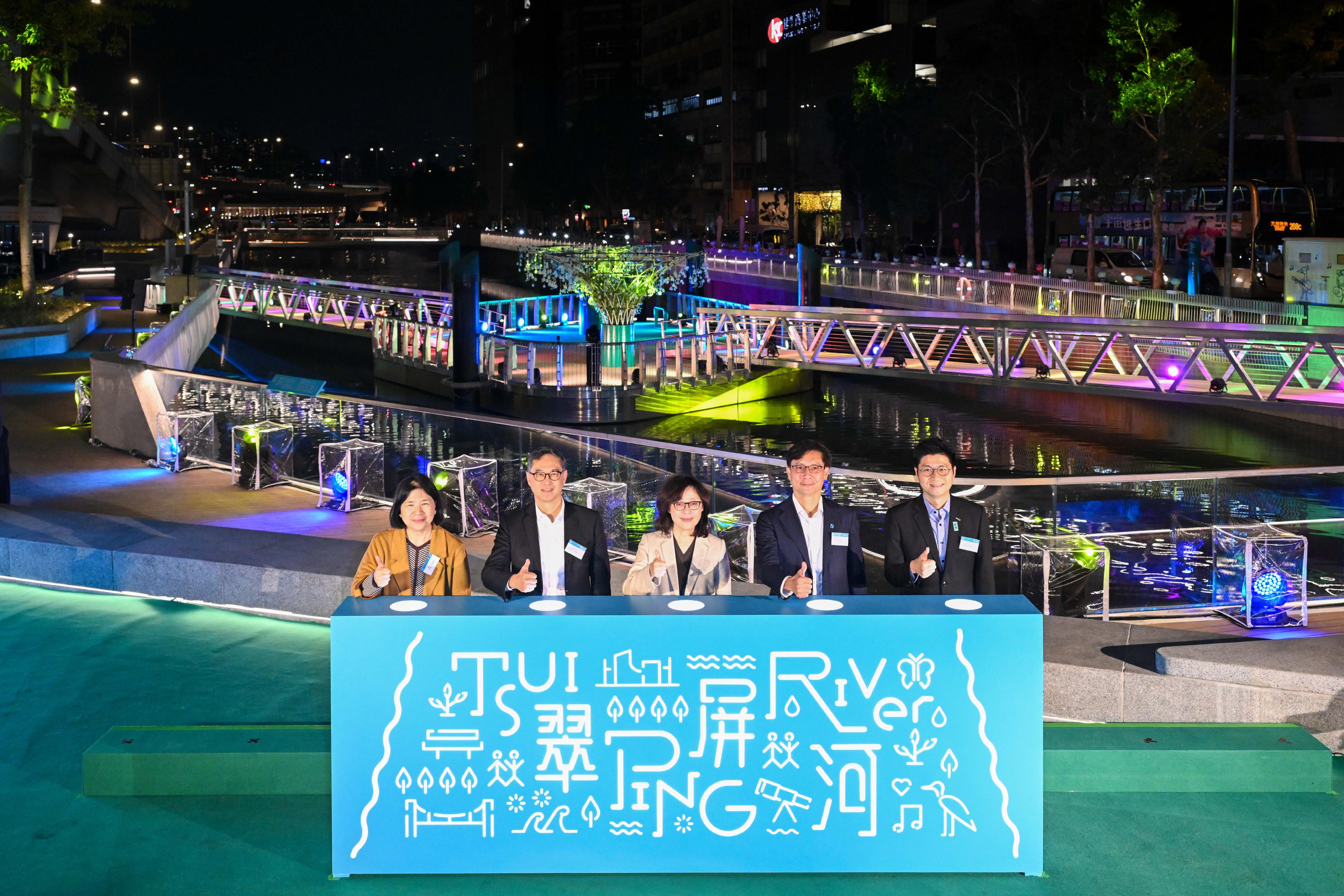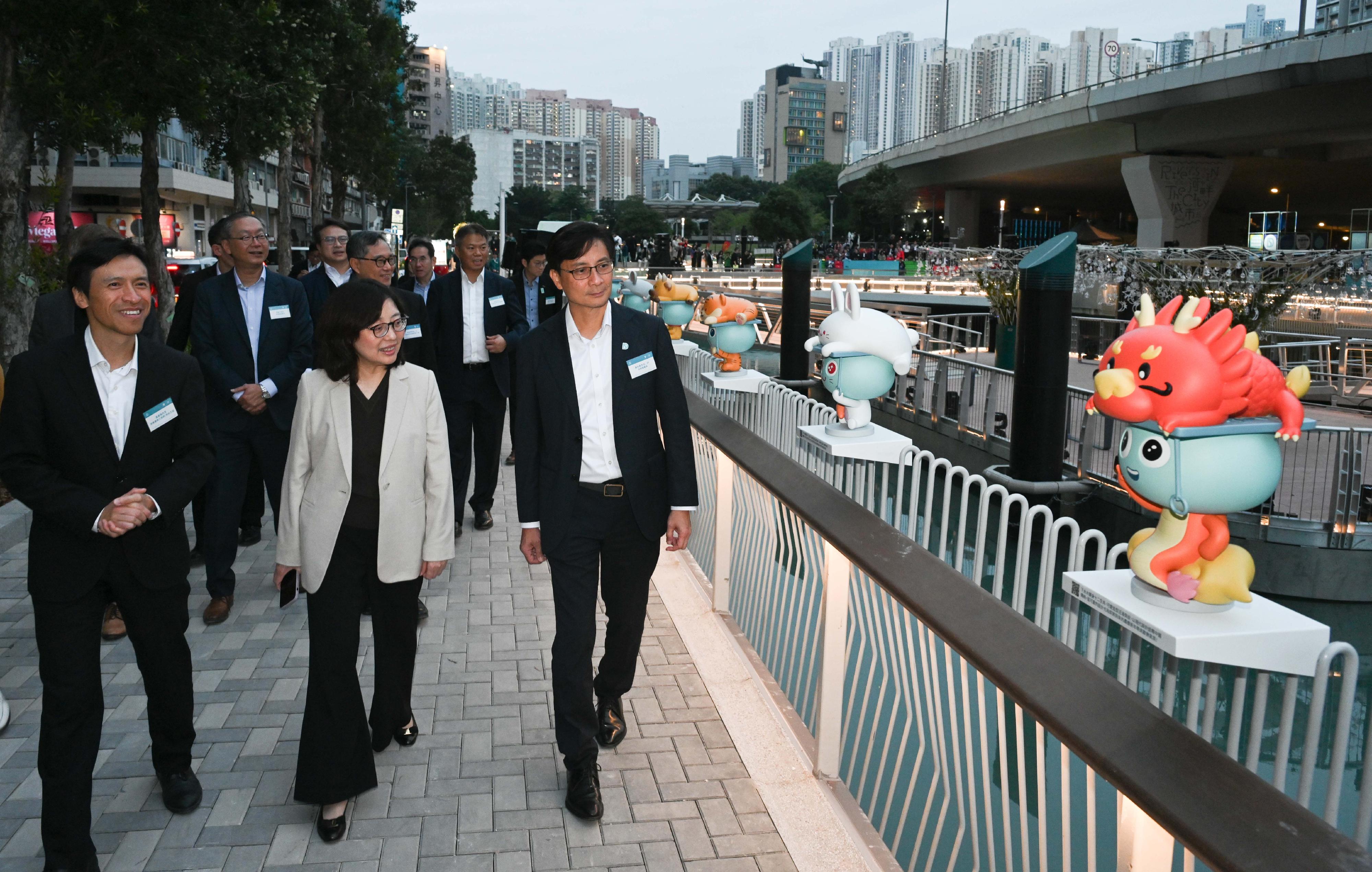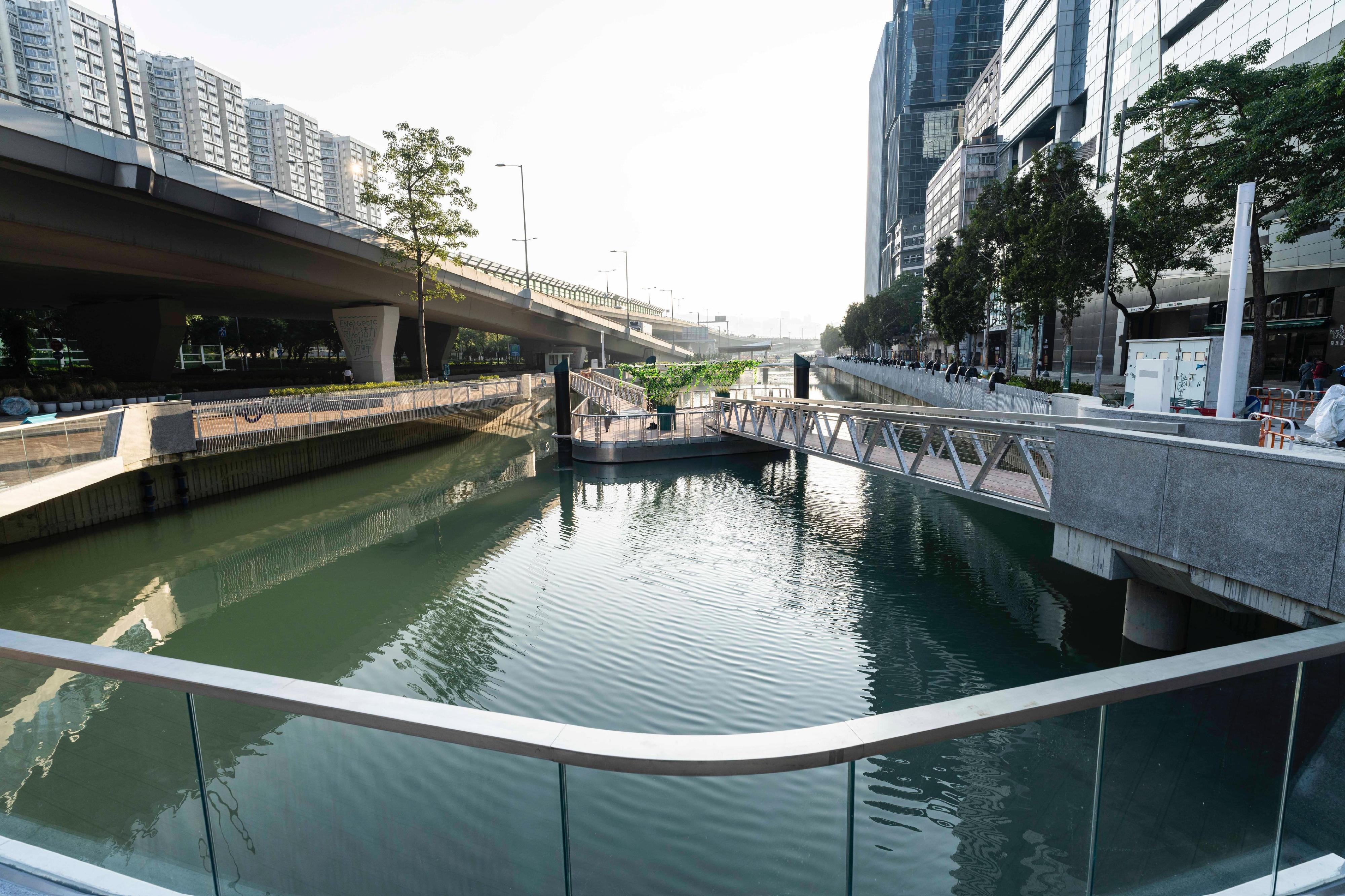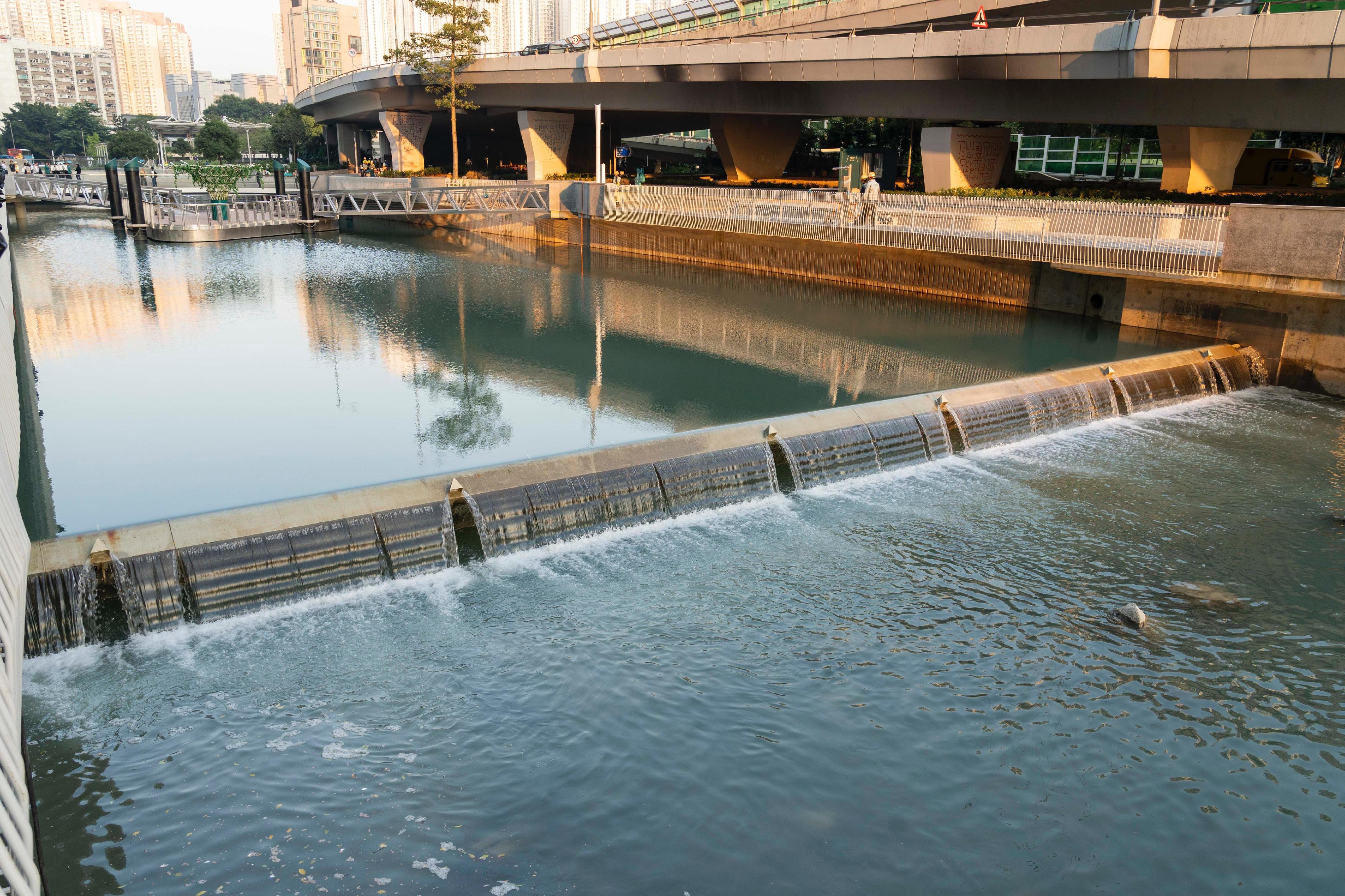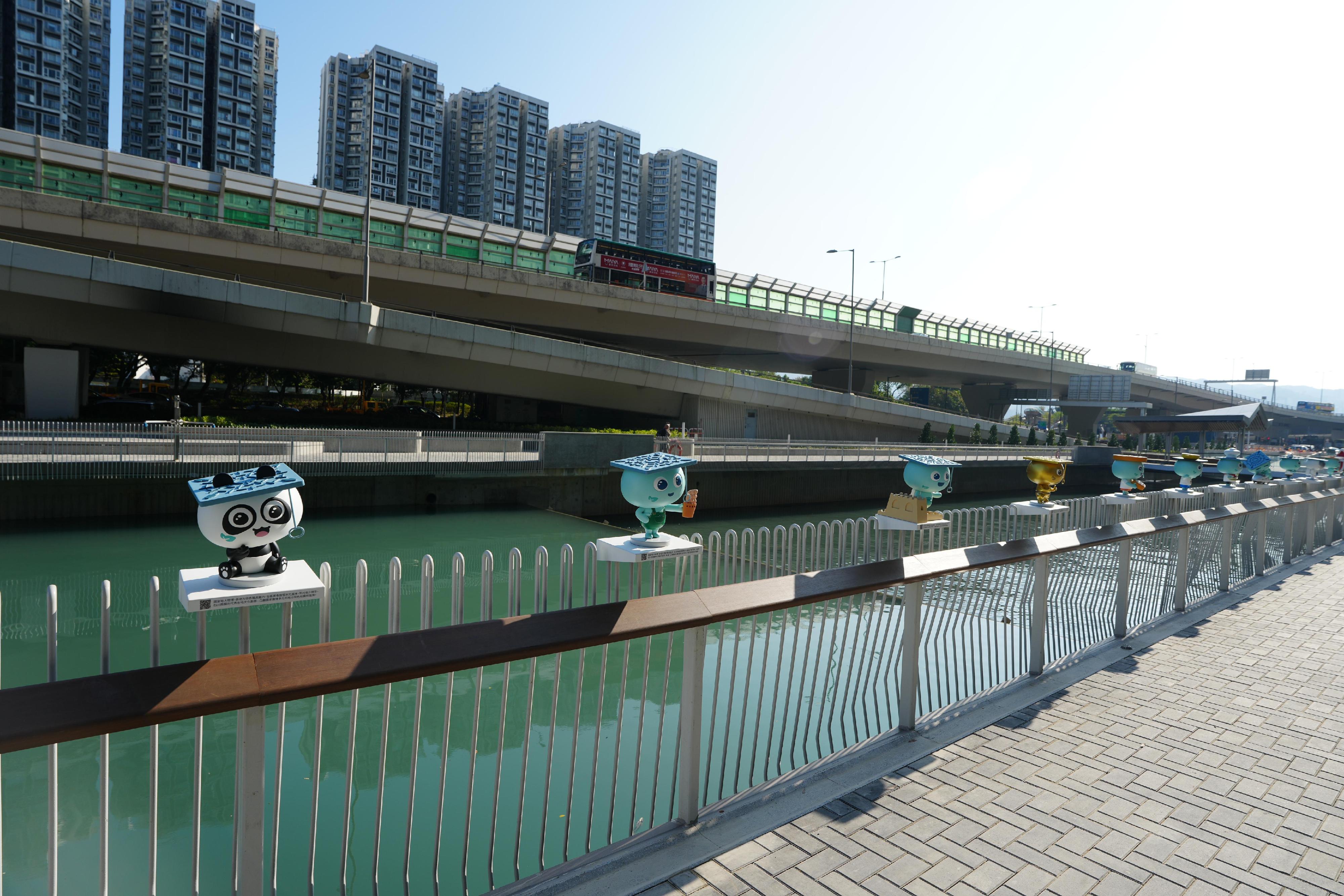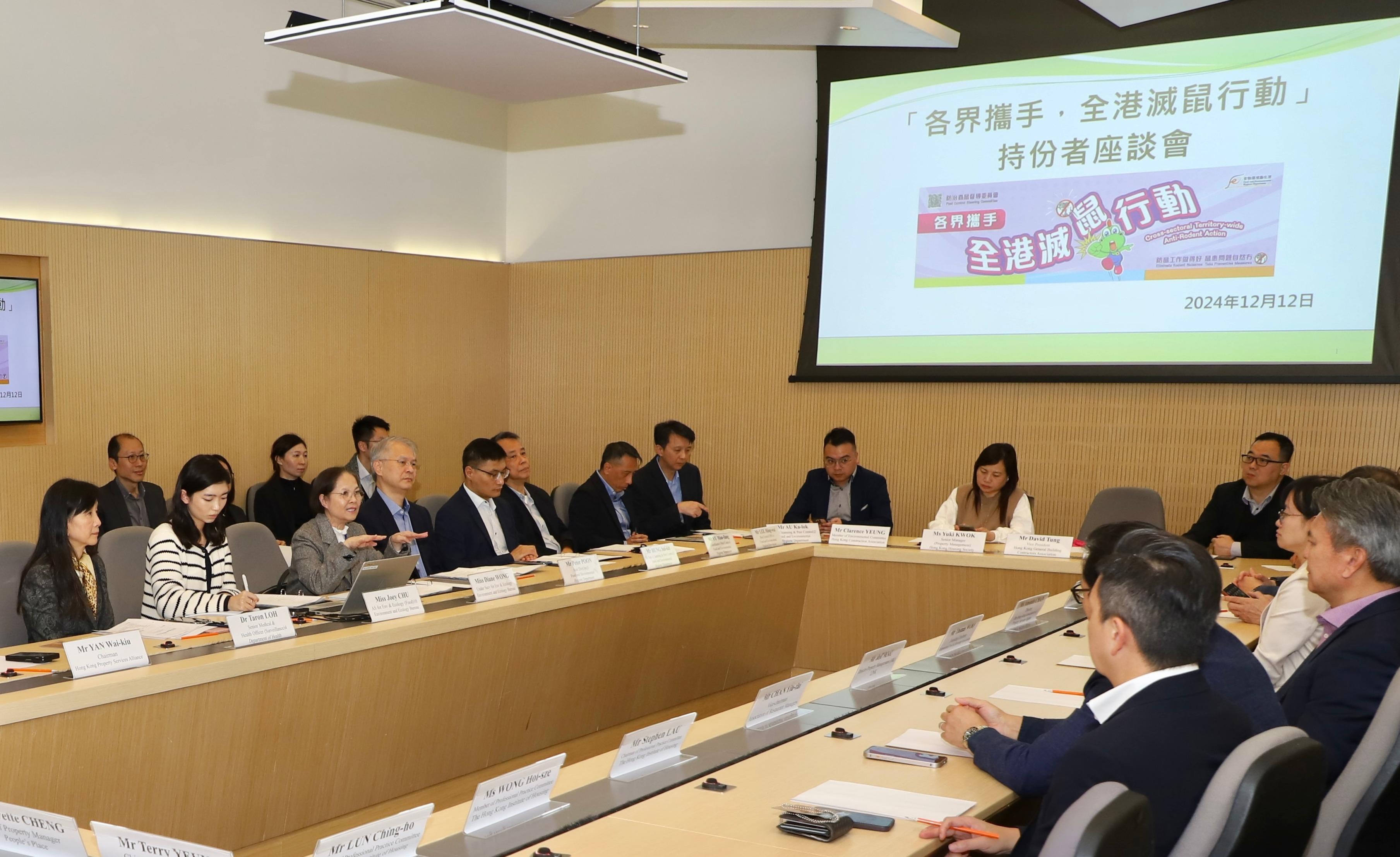Speech by Secretary for Home and Youth Affairs at Hong Kong Business Association Vietnam 2024 Christmas Dinner (English only) (with photo)
Following is the speech by the Secretary for Home and Youth Affairs, Miss Alice Mak, at the Hong Kong Business Association Vietnam 2024 Christmas Dinner today (December 12):
Mr Michael Chiu (Chairman of Hong Kong Business Association Vietnam, Mr Michael Chiu), Mr He Wei (Ambassador Extraordinary and Plenipotentiary of the People’s Republic of China to the Socialist Republic of Vietnam, Mr He Wei), Ms Tran Thu Thin (Deputy Director General of the Department for Local Diplomacy Facilitation of the Ministry of Foreign Affairs of Vietnam, Ms Tran Thu Thin), ladies and gentlemen,
Good evening. It is my pleasure to join you all tonight in the vibrant city of Hanoi for this Christmas dinner. First of all, I would like to thank the Hong Kong Business Association Vietnam (HKBAV) for hosting this event to bring us together in this festive and joyful season.
The ties between Hong Kong and Vietnam are deep and enduring. Over the past 25 years, the HKBAV has served as a vital bridge between the entrepreneurial community of Hong Kong and the dynamic market of Vietnam. Your work fosters not only business ties but also friendships that transcend borders. Being one of the most significant trading partners of Hong Kong within the Association of Southeast Asian Nations (ASEAN) region and one of the fastest-growing markets in the world, Vietnam presents boundless opportunities for young people. The Hong Kong Special Administrative Region Government is also keen to strengthen co-operation between Hong Kong and Vietnam by promoting youth exchanges.
At the heart of our city’s success lies our young people, who are the future, the hope, and the pillars of Hong Kong. We recognise that their growth is not only a matter of individual success, but also the engine that drives social and economic progress. That is why we are dedicated to equipping young people with the tools, opportunities, and global perspective necessary to thrive in a fast-evolving world.
In late 2022, the Home and Youth Affairs Bureau released the Youth Development Blueprint (Blueprint), which is an important framework document that outlines our vision and guiding principles for promoting long-term youth development in the future. It put forward more than 160 measures, covering education, life planning, career development, resilience building, social participation, and much more. We remain steadfast in responding to the evolving needs of our young people, and introduced close to 60 new youth-related measures last year for the Blueprint to progress with the times.
Our commitment to youth development is matched by a strong emphasis on fostering youth exchanges and collaboration, particularly with the ASEAN countries. We have been taking forward various Mainland and overseas youth exchanges and internship programmes to provide young people with diverse and in-depth opportunities for broadening their horizons and cultivating a global outlook. In 2024-25, we offer a total of about 7 000 internship placements and 50 000 exchange places. Among them, there are around 60 internship placements and 520 exchange places which cover ASEAN countries.
Not only are we offering abundant internship and exchange opportunities for young people, some of the programmes we offer are also one of a kind. For example, this morning, I have met with four Hong Kong student volunteers who have undertaken a six-month assignment at the agencies of the United Nations (UN) in Vietnam under our United Nations Volunteers – Hong Kong Universities Volunteer Internship Programme. They have been participating in the UN’s work on poverty alleviation, resilience building, promotion of children’s rights and so on. This once-in-a-lifetime experience has certainly broadened their horizons and enabled them to contribute to the international community in the capacity of Chinese youth volunteers. I was also impressed by their enthusiasm, professionalism, adaptability and confidence. I see in them, as well as the young people of Hong Kong, immense potential and promise to become the next generation of globally minded leaders.
This evening, as we celebrate the joy of the season, we are also celebrating the continued partnership between Hong Kong and Vietnam. I believe that by investing in our young people and strengthening our connections, we are laying a strong foundation for a brighter future ahead. Together, let us continue to forge a future where businesses thrive, communities flourish, and young people can pursue their aspirations.
May the Christmas season bring joy, health, and prosperity to you and your families. Merry Christmas, and thank you.


